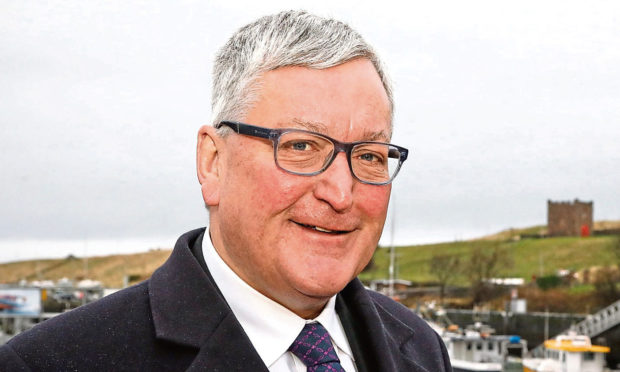The UK Government insisted last night it was putting measures in place to support Scotland’s fishing industry and communities after the loss of vital European funding.
Its reassurances came after Scottish Fisheries Secretary Fergus Ewing contacted his UK Government counterpart George Eustice seeking “urgent clarity” on the replacement for the European Maritime and Fisheries Fund (EMFF).
The EMFF delivers significant funding to the Scottish fishing industry and coastal communities, but this will be lost following the UK’s departure from the European Union.
In a letter to Mr Eustice, Mr Ewing said: “This loss of funding comes at a time when the biggest risk to Scotland’s seafood industry is the UK Government’s Brexit proposals.
“The harm Brexit will impose on the people and economy of Scotland must be minimised as far as possible.
“The alternative is to see our seafood industries facing potentially crippling delays and additional costs, which could prove devastating for jobs and exports, and have wider repercussions for the marine sector.”
Mr Ewing said Scotland’s “insufficient” £98 million share of the current EMFF pot was fully committed “well before” the deadline of December 2020.
He added: “I note the provision of new transitional funding over the three years from 2019.
“However, this funding of on average £5.5m per year equates poorly to the figure of some £20m available (annually) under the EMFF.
“I would also highlight key unfunded areas, such as fisheries harbour infrastructure.
“Scotland has over 200 active small fisheries harbours on the mainland and throughout the Scottish isles, which support mostly rural coastal communities.
“Alongside fishing activity, these ports can also serve as an important piece of infrastructure in the local economy – attracting tourists, and providing transport hubs and facilities for renewable energy development.
“With these harbours falling into disrepair, there is a real danger that fishing activity could end – with the resulting loss of services and depopulation of these communities.”
Mr Ewing called on Mr Eustice to co-operate with the Scottish Government in order to “ensure our needs are fully taken into account” and guarantee Holyrood an “appropriate” level of funding”.
A UK Department for Environment, Food and Rural Affairs spokeswoman said: “We’ve already confirmed the European Maritime and Fisheries Fund will remain open to applications until the end of 2020, allocated an additional £37.2m to support the industry as we transition out of the EU, ring-fenced £2m for fishing safety improvements – including around harbours – and committed to funding for four domestic grant schemes across the UK from 2021 onwards.
“We’re also into the second year of a £10m research and innovation fund to help support the industry’s long-term interests.”
